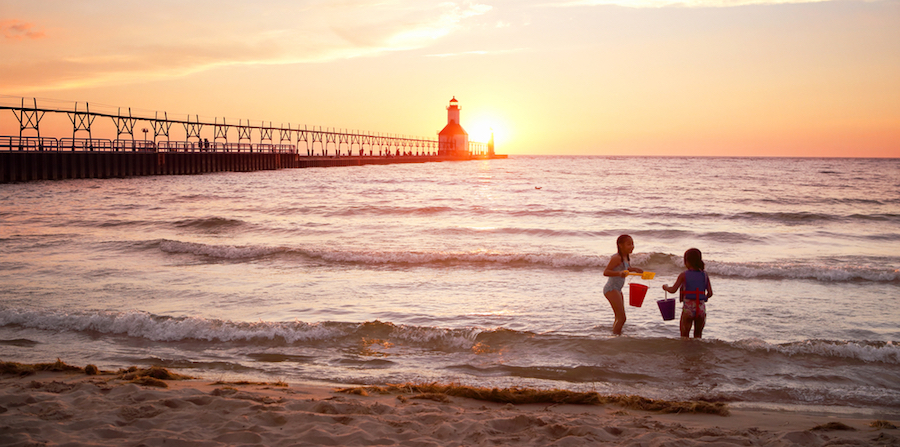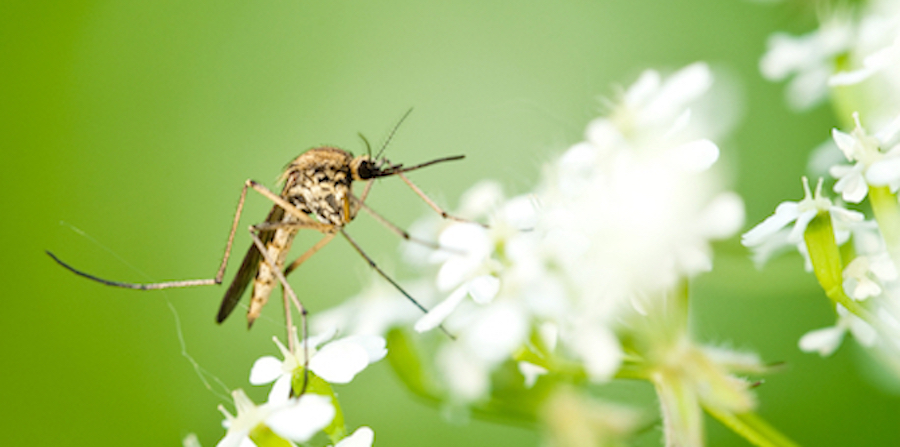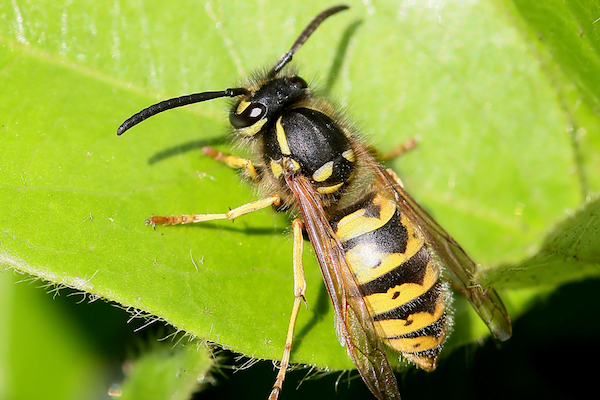Here in the upper Midwest, we don’t get too much beach time. Even if you live on a lake, you probably can’t get out on the water nearly as much as you’d like. To make matters worse, when the water finally gets warm enough to enjoy, waterborne pests are all-too happy to enjoy it with you.
Running into a pest outside or in your home is bad enough. Running into one in your water is the worst. Knowing how to avoid and prevent water pests from infesting your home will help give you peace of mind, so you can get back to enjoying your precious beach time.
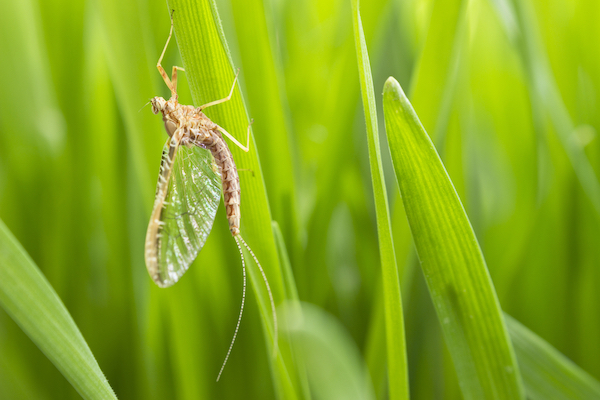
Mayflies
Mayflies get their name from their explosive emergence in May. They spend most of their lives as nymphs living in fresh water. Nymphs range in size from 3 to 30 millimeters (or .12 to 1.18 inches). They have six clawed legs, a slim body, gills, and two or three tails. Adult mayflies have famously short lifespans and live only to reproduce. They grow longer and more slender than nymphs, and their two pairs of pale wings become functional.
During mating season, mayflies swarm in huge numbers. Often, these swarms grow so large that they cover every surface in a wide area or create significant visibility issues for drivers. Mayflies are attracted to white incandescent and fluorescent lights. Replace white outdoor lighting with yellow bulbs. Consider drawing the blinds at night. If your mayfly problem seems particularly bad, UV light insect traps may prove effective.
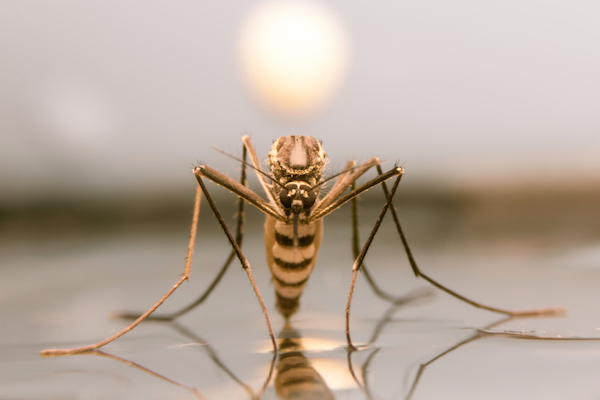
Mosquitoes
Yes, mosquitoes live in and around water. It’s just not fair! Specifically, many types of mosquito lay eggs in standing water. Mosquitoes need to stay hydrated to survive, which means they need to stay in places where the air is humid and damp. Both of these needs make lakes, rivers, and wetlands the perfect place for mosquitoes to live and breed. If they can get some of the blood they need to lay eggs somewhere nearby, so much the better.
The best way to prevent mosquito infestation in your home is to mop up standing water in your house or on your lawn. If you’re going out to the beach, bring some waterproof bug spray and reapply it every two hours. Try not to stay until dusk, when mosquitoes become more active. Bring along long sleeves and pants to change into after you’ve finished swimming.
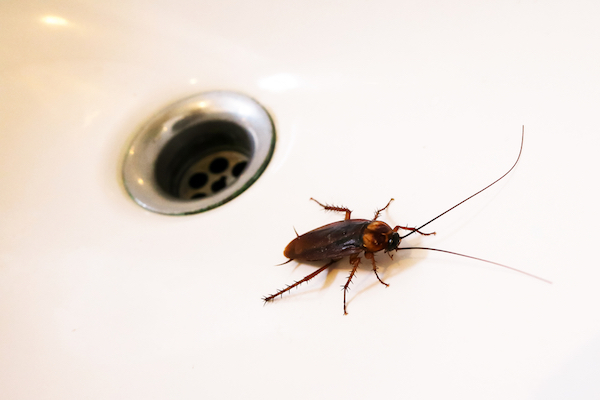
Cockroaches
Like most of the other pests on this list, cockroaches love moisture and humidity. Cockroaches can survive for a month without food, but only two weeks without water. Unfortunate beach goers commonly discover them under wet soil, clinging to the base of a tree or other plants. Though they rarely go near the water itself, the environment lakes and rivers create is perfect for roaches to thrive in.
Roaches are scavengers, and they’ll eat anything they can get their hands on. They’re especially fond of bread crumbs, rotting fruit, and sweets. Outdoor picnics will tend to attract them in droves, especially if remains are left behind. At home, securely tie off or box up your pantry foods and wipe down counters and tables after meals. Cockroaches will take pretty much whatever they can get, so do your best to give them nothing.
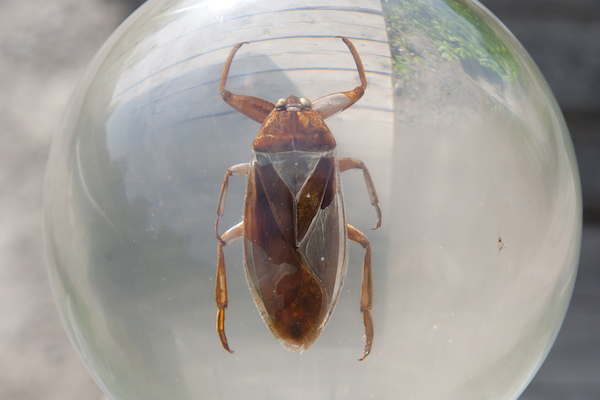
Waterbugs
Waterbugs are often mistaken for cockroaches, but there are some big differences–literally! First and foremost, size: waterbugs are a lot bigger than cockroaches. Lethocerus americanus, the most common waterbug in North America, ranges from 12 to 65 millimeters in length (1-2 inches long!). Unlike cockroaches, waterbugs actually live in water, swimming beneath the surface to catch prey. Cockroaches never bite humans, but water bugs are called “toe biters” because of their propensity to defend themselves with painful bites if disturbed.
Waterbugs need water. If they’re coming into your home, there’s a source available to them. Search your home for leaks, dripping faucets, or cracks that allow water in. Water bugs also fly toward light. These bugs get more active at night, when they fly around looking for new ponds or prospective mates. When you’re out, avoid spending too much time around lakes after dark, and be aware of where you step on the lake floor.
No two ways about it: water pests are freaky. No one wants to think about going for a swim, only to step on some gross bottom feeder. If you know a bit about the pests you’re likely to see, however, chances are they won’t seem as monstrous or dangerous to you. If you follow these steps, you may not have to see them at all!
If you’ve been struggling to keep waterborne pests out of your home or lawn for awhile and you’re at your wit’s end, give Griffin a call today! Whether they come by land, water, or air, we’ve got the perfect defense to thwart your pesky pillagers. Enjoy the beach!

